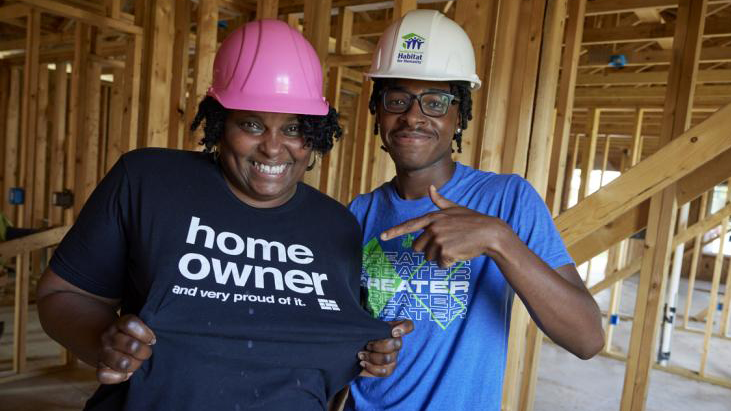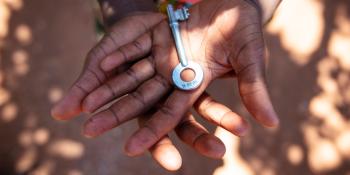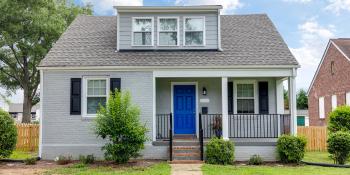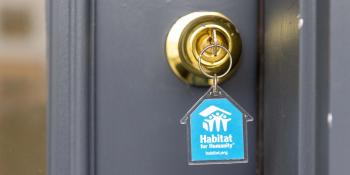Habitat for Humanity’s vision is a world where everyone has a decent place to live, but a structure of intentional and systemic racial discrimination in the U.S. has created barriers to homeownership for many Black families.
Systemic discrimination has persisted into present policy, from redlining to inequitable access to mortgage credit. Taken together, these practices are barriers to saving for a down payment, getting a loan and affording a home – and they threaten the vitality and prosperity of every community.
Across the U.S., Black families are less likely to own their own homes than white families. During Habitat’s 45-year history, our work has helped close that homeownership gap; in FY2021, Black homeowners made up 43% of the families who partnered to build with us. But we must do more:
- Be proactive
- Ensure everyone has a seat at the table
- Work collaboratively
“Habitat is an established affordable housing leader, both as a developer and mortgage provider in the U.S.,” says Tawkiyah Jordan, Habitat for Humanity International’s vice president of housing and community strategy. “Our experience and scale uniquely position us to increase Black homeownership, a commitment we want to make absolutely explicit.”

Our comprehensive strategy for advancing Black homeownership
Habitat works to help dismantle the systemic bias that permeates U.S. home buying, home financing and exclusionary zoning practices, which have prevented generations of Black families from accessing the intergenerational wealth-building potential of homeownership.
Leveraging funds provided in part through MacKenzie Scott’s $436 million transformational donation, this work includes:
- Development of a racial-equity lending strategy and property acquisition fund through Habitat Mortgage Solutions, our community development financial institution.
- Funding opportunities for U.S. Habitat affiliates engaged in innovative work to increase Black homeownership locally.
- Financial coaching and counseling for applicants along their homeownership journey, whether they become Habitat homeowners or not.
- A Black homeowner advisory group, representative of the people we seek to serve, to help guide us as we develop strategies and implement programs to increase Black homeownership across the U.S.
- Research and measurement efforts to identify best practices in areas such as housing innovation, preserving home affordability, and exploring how new and existing programs lead to better outcomes for individuals and families.
- Advocacy for policy proposals and legislation that enable millions of people access to affordable homes through Cost of Home, our U.S. advocacy campaign.



